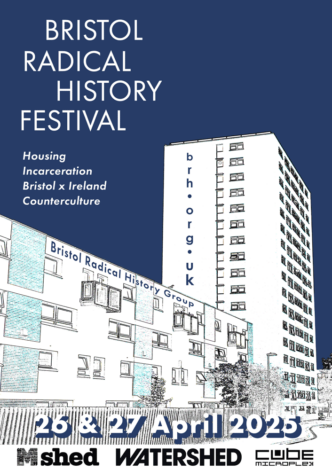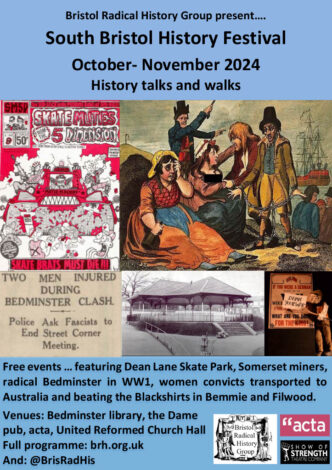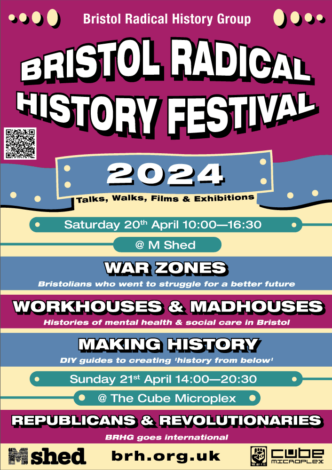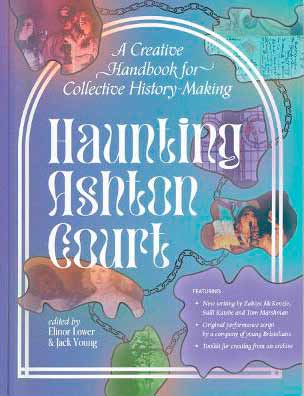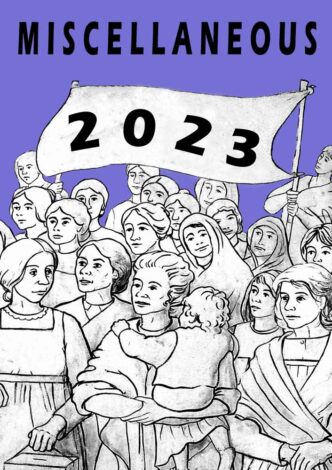The Institute for Social Ecology (ISE) was a significant flowering of political ecology from the 1960s and 1970’s counterculture. It was co-founded in 1974 by its most prominent thinker, Murray Bookchin, and Dan Chodorkoff. Bookchin wrote extensively about food and agriculture from the early 1950s. In 1962, his first book on pesticides appeared, shortly before Rachel Carson’s more famous Silent Spring on the same topic. As an autoworker brought up in The Bronx district of New York, he was an […]
Bristol History Podcast is dedicated to exploring various aspects of Bristol’s history. Produced in partnership with the Bristol Cable since April 2018. Episodes include Tom Brothwell’s interviews and conversations with Bristol Radical History Group members and many others.
This meeting brings together local historians, and writer and director Ingrid Jones of the Bedminster based acta Community Theatre. We will discuss the process from the seed of an idea, to research, devising, scripting, rehearsal and performance. We will also consider the difficulties of doing 'history from below', researching periods beyond living memory, where to find the voices of people and how to create a script and theatre piece from this. This will be an open discussion with plenty of […]
In recent years, Bristol Radical History Group and the Remembering the Real World War 1 group (RRWW1) have been working with teachers in Bristol on resource material about resistance to World War 1 and, lately, workhouses. This session will set out what has been achieved so far and invite debate about what we, and others involved in education, can do in the future to introduce radical histories, histories ‘from below’ and 'hidden histories' to young people.
Oral history creates space for the voices of ordinary people and overlooked communities to make a contribution to the historical record. It creates new primary sources which, although always subjective, provide rich and compelling narratives. What’s more, oral history offers new and exciting interpretive opportunities, from embedded QR codes that make exhibitions speak via your smartphone to the ever growing history podcast market. This panel discussion on the pleasures and pitfalls of oral […]
How can digital technologies help us to think more creatively about making radical histories from below? This talk considers the use of immersive ‘real world’ digital tools, not only in the reconstruction of radical pasts, but in challenging the conservatism of the ‘authoritative voice’ in mainstream ‘top-down’ history. Historically-based games with open-ended outcomes, it is suggested, invite audiences to think more critically about the ways in which evidence might be pieced together in the […]
In 1861, Bristol’s Lunatic Asylum opened its doors and 164 pauper patients transferred from the workhouse. What treatment did this new state-of-the-art hospital provide, and how did it evolve over the next 130 years until closing in 1994? Stella Mann of the Glenside Hospital Museum, housed in the old asylum chapel, will talk about the evolution of Bristol’s mental health provision from the Victorian age to the present day. History can be discovered through many different routes. Every […]
Producer/directors David Parker and Colin Thomas have both challenged conventional approaches to television history in their productions: David by tapping into home movie archives and by seeking out 'history from below' contributors in West Country series like Reel Lives; and Colin by including different historical perspectives within the same programme. Michael Sheen described The Dragon Has Two Tongues, a series on Welsh history which Colin made for Channel 4, as “one of the greatest history […]
“Mishmash” is the term the authors of this book use to describe their various working methods. It is also an accurate description of the book itself which contains not only the performance script of the Haunting Ashton Court production but also its sources and inspiration, some creative writing, a toolkit for similar productions and a wise afterword. Plus – totally new to me – QR code sections that enable a reader with a smart phone to see and hear parts of the live production. I confess that […]
We are very pleased to have Ian Bild a founding member of the influential Bristol Broadsides and the cast, researchers and organisers of the recent Haunting Ashton Court project speaking and performing at M Shed. Bristol Broadsides was a non-profit making publishing co-operative founded in 1977. Its aims were best summed up by the Hut Writers from the Southmead council estate in their book Corrugated Ironworks: For too long we’ve been sitting back, complacently accepting everything that has been […]
